

History in the Making Kamala Harris 2024
Wellington E. Webb
42nd Mayor of Denver
First Black Mayor of Denver
65 Percent Approval Rating After Three Terms
Wilma J. Webb
Former First Lady of Denver
Former Colorado State Representative
Former Regional Administrator U.S. Department of Labor
WEBB’S VOTER GUIDE
Welcome to our guide on election voting tips for 2024. We hope to help you make informed decisions when it comes to casting your vote.
U.S. President & U.S. Vice President
Kamala Harris - “A President Americans can be proud of!”
Tim Walz - “America’s Team Coach”
Congressional Elections
Colorado House of Representatives - Colorado State Senate
Diana DeGette – First District “Steady as the Mississippi River”
Joe Neguse – Second District “A national Democratic leader” - Boulder/Ft. Collins
Jason Crow – Sixth District “A national foreign policy expert” Aurora
Brittany Pettersen – Seventh District “An American success story, who belongs in the U.S. Senate” Jefferson county Yadira Caraveo – Eighth District “Hard worker for all of us” - Adams County
Ballot Issues
AMENDMENT 308 – VOTE NO
The elitist want to harm the Denver Stock Show and Native American businesses. Next they will want to ban fishing.
AMENDMENT 309 – VOTE NO

The elitist want to close our last packing house in Denver putting more than thousands of workers out of work – all low income minorities. Another blow to the GLOBEVILLE community.
AMENDMENT 2Q — VOTE YES
Save our hospital – DENVER HEALTH, formerly Denver General Hospital A hospital, paramedics, nurses, doctors that is the heart of DENVER. INITIATIVE 138 – VOTE YES
Vote YES for our children!! SAVE THE CHILDREN!
Races of Interest - VOTE YES
Senator James Coleman – State Senate District 33
Representative Jennifer Bacon – State House of Representative District 7
Lindsay Gilchrist – State House of Representative District 8
Senator Rhonda Fields – Arapahoe County Commissioner

Whatever happened to the Park Hill golf course park?
We are not going back!!
We hope these election voting tips have been helpful. Remember, every vote counts!

PUBLISHER
Rosalind J. Harris
MANAGING and COPY EDITOR
Ruby Jones
COLUMNIST
Barry Overton
CONTRIBUTING WRITERS
Elena Brown
Tanya Ishikawa
Latice Owens
Wayne Trujillo
SPECIAL PROJECTS ASSISTANT
Tanya Ishikawa
ART DIRECTOR
Bee Harris
GRAPHIC DESIGNER
Jody Gilbert Kolor Graphix
SOCIAL MEDIA / DIGITAL MARKETING
Melovy Melvin
DISTRIBUTION
Lawrence A. James

Denver Urban Spectrum is a monthly publication dedicated to spreading the news about people of color. Contents of Denver Urban Spectrum are copyright 2024 by Bizzy Bee Enterprise. No portion may be reproduced without written permission of the publisher.
Denver Urban Spectrum circulates 25,000 copies throughout Colorado. Denver Urban Spectrum welcomes all letters, but reserves the right to edit for space, libelous material, grammar, and length. All letters must include name, address, and phone number. We will withhold author’s name on request. Unsolicited articles are accepted without guarantee of publication or payment.
Write to Denver Urban Spectrum at P.O. Box 31001, Aurora, CO 80041. For advertising, subscriptions, or other information, call 303-292-6446, email publisher@urbanspectrum or visit the Website at www.denverurbanspectrum.com
**REMEMBER TO REGISTER TO VOTE**
This is a defining time in American history. With less than two months until the U.S. General Election, Denver Urban Spectrum is focused on creating connections between members of our communities and people in leadership – locally and nationally.
It’s never too early (or too late) to learn how our government works. As Colorado gears up for what may be the most important election in history, contributor Latrice Owens highlights several community organizations working across the front range to engage young people in the political process.
Additionally, several members of the Black Democratic Legislative Caucus of Colorado are encouraging civic engagement among the Black community, with messages about their roles as state legislators and insights about the pioneering Democratic presidential candidate.
Our cover story for October features United States Vice President, Kamala Harris, whose trailblazing career has prepared her for the greatest fight of her life this November. With an extensive track record of civic leadership as a state senator, attorney general and now second in command, Harris made history as the first woman of color to receive the Democratic presidential nomination. In November, she will face former U.S. President, Donald Trump, in a contentious, high-stakes race to the White House. This month, DUS contributor Elena Brown details Harris’ legacy of leadership in “Kamala Harris: Moving America Forward.”
The beautiful portrait of Vice President Harris, featured on this month’s cover, is an original work by the acclaimed artist, Dr. Thomas Lockhart. The award-winning painter also created a stunning work featuring DUS Publisher, Rosalind “Bee” Harris, to celebrate 37 years of community reporting ahead of the Denver’s Voice 37 anniversary celebration. DUS contributor Wayne Trujillo shares the story behind Lockhart’s artistic vision in an article introducing his brilliance to our readers.
Civic engagement and political participation are fundamental rights that were not always afforded to people of color in the United States. After years of tireless advocacy and efforts to dismantle barriers to the ballot box, exercising the right to vote is essential to our freedom and our future. In the weeks ahead, familiarize yourself with local ballot issues and national agenda items, and get ready to “Rock the Vote!”

Voting for Black Futures: A Letter from the Heart Op-ed by Tracy Winchester
“Afrofuturism expresses notions of Black identity, agency and freedom through art, creative works and activism that envision liberated futures for Black life.”

To all Afrofuturists, and to my young, gifted and Black son…
Your vote in the presidential election will help determine the trajectory of our lives.
Afrofuturists between the ages of 18 to 34, I ask you which presidential candidate will have your best interest at heart? Who will protect your right to have a
future that gives you opportunities to live the life you want.
If you want that car, your dream job, house and more money, you have to make decisions today that will determine your success in the future.
If you are lucky, your life will not be a 100-yard sprint, but a 26.2-mile marathon. You need to think about the future for all of us. When you go to vote, you are voting for your family, your friends, loved ones and your future.
Top issues that Afrofuturists are concerned about are the economy, inflation, upward mobility, etc. Under a Harris Administration, the vice president has promised to address the high cost of living and the economy with:
•$50,000 tax deductions for small business start-ups.
•$25,000 down payment assistance for first-time homebuyers.
•Accountability standards for companies that harm consumers with price gouging.
We essentially have a twoparty system, and you are either a player or a bystander. If you vote, you are in the game. Otherwise, you are watching other people play the game of life and betting with your money.
Your taxes are used to keep our city, state and federal government operating. You pay taxes on your income, your property and almost everything that you purchase.
Continued on page 29
Ruby Jones DUS Editor
LETTERS, OPEDS, OPINIONS
Kamala Harris Moving America Forward
By Elena Brown
It all starts with a handshake.
Want to make a captivating first impression?
…Know when to extend your hand.
Want to stand apart from the competition?
…Shake from the elbow, not the shoulder.
Want that promotion?
…Exert power and influence, with just the right grip.
The first gesture is the most important, but you only get one shot.
Shaking Things Up
One of the most impressive aspects of the handshake is its ability to make (or break) a first impression; but can you really judge a person by the way they shake hands?
Science says, “Yes!”
According to Psychology Today, in less than five seconds – or the time it takes to extend a hand – a prospective employer, client or business associate can begin to determine whether someone is trustworthy or confident. Reaching out with a hearty handshake is one of the first indications that an individual is competent; it suggests and symbolizes an ability to follow through.
Each shake of hands presents a new opportunity to show respect, display good intentions and indicate where someone stands. A warm, open embrace suggests friendly terrain and a willingness to explore communication further; a tight, hesitant handshake may indicate the opposite.
So, when Donald Trump stepped onto the debate stage on Sept. 10, and headed directly to his lantern, Kamala Harris’ entry was marked with noticeably elevated confidence and an air of self-assurance as she walked purposefully across the stage and right into the former president’s space.
“Kamala Harris,” she said, extending her hand boldly. “Let’s have a good debate.”
Setting The Tone
There are no rules that obligate candidates to shake hands during a presidential

debate. In fact, Harris’ was the first debateopening handshake since Trump met Hillary Clinton on stage in 2016. It was an assertive power move for the presidential hopeful to extend her hand, and in doing so, she set the tone for the highly anticipated event.
Setting the tone is nothing new for the 46th Vice President of the United States. A trailblazer in American politics, Harris is the first woman and the first woman of color to hold the nation’s second highest office. Her identity as a mixed race woman has been central to her historic achievement, though her lineage and ethnicity have been both celebrated and scrutinized.
Her rise to political prominence represents the defeat of systemic inequities devised to limit the involvement of people of color in political arenas. She represents a shift toward a more inclusive political landscape – one that reflects the diversity of the American populace.
However, Harris’ identity has also been the subject of debate and criticism.
She was born in 1964 to an Indian mother and a Jamaican father who immigrated to the United States in pursuit of higher education. Her mother, Shyamala Gopalan, originally from Chennai, India, was a breast cancer researcher. Her father, Donald Harris, a native of Jamaica, was an economics professor.
Despite being touted as the first Black and Asian American vice president and Democratic presidential nominee, some critics have questioned whether she fully represents or resonates with the experiences of Black Americans.
In addition to inherent cultural differences delineating Black American and Jamaican heritage, Harris did not grow up in a predominantly Black environment. Her parents separated when she was five years old; after their divorce, she and her younger sister, Maya, were raised in the care of their mother. In addition to speculation regarding a strained relationship with her father, her marriage to Doug Emhoff, a Jewish man, has prompted questions regarding her commitment to the Black community.
Some point to Harris’ record as a prosecutor, attorney general and the first Black American to be elected to the United States Senate from the state of California, arguing that her tough-on-crime policies disproportionately affected Black communities.
During her 2020 presidential campaign, activists and commentators questioned whether she was “Black enough” to represent Black American voters. She responded to these criticisms by emphasizing that Black identity in America is not monolithic.
Her lived experiences, while different from those of many other Black Americans, still connect her to the broader struggles of Black people in America. She has frequently spoken about the racism and discrimination she faced throughout her life, including being bussed to integrated public schools as a child and encountering racism throughout her career.
Rooted In Love
Born in Oakland, California, Harris’ early family environment was rooted in civil rights and education.
Her mother raised the sisters to be proud of both sides of their Black and Indian heritage. She placed a strong emphasis on the value of education as a means of empowerment – particularly for women of color –and encouraged them to excel academically.
As a young adult in the 1980s, Harris attended Howard University, a prestigious, historically Black institution in Washington, D.C., before going on to attend the University of California and Hastings College of the Law. While at Howard, she majored in political science and economics, and became a member of the intercollegiate sorority, Alpha Kappa Alpha Inc..
After graduating from law school, she worked in the district attorneys’ offices of Oakland and San Francisco before being elected attorney general of California in 2010. After being elected to the U.S. Senate in 2016, she advocated for gun control laws, the DREAM Act, legalization of cannabis, and tax and healthcare reform.
Harris’ childhood, shaped by her multicultural heritage, her mother’s activism, and the civil rights movement, laid the foundation for her career in public service. On her webpage, she credits her mother for instilling the importance of standing up for what is right, fighting against injustice, and continuing the “good fight” for those to come. She remembers her words, “Kamala, you may be the first to do many things, but make sure you are not the last.”
Moving Forward
In her role as United States Vice President, Harris’ racial identity is only one aspect of her public image, yet her priority areas – criminal justice and voting rights – have made an
impact on historically underserved communities.
As a symbol of progress and representation, she stands as a powerful example of the intersectionality of race, gender and immigration in America. The excitement surrounding her platform and the potential for progressive change has motivated organizations across the country to mount civic engagement initiatives in support of a successful Harris campaign.
“We have work to do,” says Colorado Black Women for Political Action (CBWPA) Vice President, Jamie Jackson. “This is an uphill battle and that takes more than happy feelings; it takes plans and policies.”
The brainchild of former State Senator Gloria Tanner, CBWPA was founded by 13 women to encourage African American participation in the political process. The organization provides political advo-
cacy, infusing Colorado politics with the strength and perspectives of Black women.
The group hosted a watch party for Harris’ historic nomination at the 2024 Democratic National Convention, which came just two weeks after President Joe Biden dropped out of the race. Since July, her campaign has raised a recordbreaking $540 million, while
Continued on page 6

provide valuable resources to prepare you for the most important investments in your life—your home and your future. We appreciate the opportunity to get to know you.
Kamala Harris
Continued from page 5 Trump’s campaign experienced one of its best months, taking in a whopping $47.5 million in July alone
Harris is working under an extreme time crunch to persuade voters into believing that she has what it takes to serve as president. For many viewers, the September debate was the first time meeting the political powerhouse. From the moment she stepped onto the stage, it was clear that she had a lot to prove.
Doubling Down
Harris and Trump’s differing approaches to leadership were most evident during their first and only debate.
Trump’s appearance matched his role as an unconventional and unyielding Populist, while Harris showed up as a pragmatic and expressive leader. The former president and financial figurehead appeared as a polarizing figure, with the same swing between stoicism and erraticism he ruled with from 2016 to 2020.
In his previous presidential debate performances, he often dominated the conversation, interrupted opponents and focused on sound bites that appealed to his supporters. However, this debate was heavily moderated, with muted microphones and little opportunity to seize control of the questioning.
Harris exhibited extensive knowledge of each topic. Her answers emphasized factual accuracy with legal undertones honed from her years as a prosecutor. Even when Trump seemed unwilling to look at her, she frequently looked directly at him or at the camera, addressing her opponent and her audience head-on.
She appeared to hold the upper hand for much of the debate, easily baiting Trump on various issues like foreign policy, the attempted U.S. Capitol
insurrection in 2021, immigration and the economy.
However, she faced a challenge that Trump did not: explaining to the country what they should expect from a Harris presidency.
Straying from the ideological mission to remake society, she describes her vision as “an opportunity economy” which focuses on strengthening the middle class. She sees the government as a tool for improving lives as quickly as possible through practical means, such as lowered costs for medication, expanded access to healthcare, infrastructure improvements, decreased inflation and support for small businesses.
Rebutting claims that she lacks ideas, she repeatedly touted her economic plan, her work to establish the Partnership for Central America and ongoing foreign policy experience, citing meetings with Volodymyr Zelenskyy and efforts to organize a response to Russia’s invasion of Ukraine.
Still, Republicans have highlighted Harris’ missteps on immigration, referring to her as the “border czar” for years.
A Clear Winner
More than 67 million viewers, across 17 networks, tuned in to watch the 90-minute debate on ABC, according to Nielsen data provided by CNN.
Hours after the debate, YouGov released a poll showing that 43% of respondents thought Harris was victorious, while 28% said Trump was the winner. Around 30% said they were not sure of a clear winner.
Michael Eric Dyson, an author and professor at Vanderbilt University, proclaimed “Kamala smoked him like a rack of ribs.”
He isn’t alone in his view. Even left-leaning NewsNation’s Dan Abrams and Chris Cuomo agreed that Harris’ hopeful rhetoric is more likely to sway undecided voters.
“He wouldn’t even look at her, which I think is a mistake on a human level,” Cuomo said.
Fox News Chief Political Analyst, Brit Hume, said ‘She was composed. She was prepared. She kept her cool. She saw advantages and took them. She baited him successfully, which is the story of the debate in my view. So she came out ahead in this in my opinion… no doubt.”
The outcome of the debate largely depended on which candidate could more effectively communicate their vision to voters. With the nation in a state of such deep polarization, everything matters. However, despite general consensus, debates don’t typically move the needle for partisan voters like Colorado native, RT*, who maintain their commitment to a selected political party.
“I don’t know much about her,” says RT, who admittedly chose not to watch the debate. He is a conservative voter who typically supports Republican candidates, though he voted for Obama in 2008.
Unwilling to base his vote on race or popularity, he asserts that Black men are not a monolith, saying that more Black men are moving back to the Republican Party due to its embrace of more conservative, Christian views. This revelation is supported by a Pew Research study from 2019, which estimated that 4 in 10 Black Democratic voters were ideologically moderate, with a smaller share being ideologically conservative.
RT is seriously considering sitting out this year’s election, for the same reasons he didn’t vote in the 2016 election.
“I’m tired of feeling like I have to choose between two evils. I’m not voting for Kamala, but I’m not looking forward to voting for Trump,” he says.
For supporters of Harris, the freedom and progressive for-
ward movement represented by her candidacy is a breath of fresh air and a reason to show up to the polls in November.
“This is an electric moment in time where the United States of America has the opportunity to elect its first woman president,” says community organizer and journalist, brother jeff, sharing excitement for what Harris’ representation and ally ship means for his own daughters.
We’re Not Going Back
After its first debate watch party in September, brother jeff’s Cultural Center will host another watch party for the vice presidential debate between Governor Tim Walz of Minnesota and Senator JD Vance of Ohio on Oct. 1. There is no expected follow-up debate for the presidential candidates, who have set out on monthslong campaign trails in the race for the White House.
With September’s debate revealing the deep ideological divide lodged between two sides of the American people, Harris’ progressive vision for the future embodies the freedoms that define the country’s founding principles.
Much like her candidacy reflects an acceleration of equity and social reform, Harris’ decision to extend her hand in a traditional greeting gesture reminds us of the importance of presence and connection in the face of adversity.
In her first public interaction with a man who is hated and feared by many, her ability to cross the invisible line onstage with courtesy and confidence was a small gesture that carried immense weight. It was a significant step toward leadership, and an assurance that she is the right woman for the job.
Harris extended her hand to Trump; and now, she’s proudly extending it to the American people..
Editor’s note: *Real name withheld by request
Turning Heartbreak into Purpose
Cultivating Culturally Responsive Support Through Loss
We have shared many joys as a married couple, especially as parents, but we never imagined the heartbreak of losing so much at once.
In May 2018, Langston’s mother passed away, leaving an empty void. Shortly thereafter, we were blessed to learn that we were expecting a son. But, in September and at five months pregnant, we discovered that the child I was carrying was no longer living, and that I would have to deliver him stillborn. We were crushed, broken and deeply sorrowed. In November, we lost our spiritual niece at age 21. The grief at that point was overwhelming and undeniably challenging to grasp. The continuous wave of losses was beyond traumatic. We knew we needed help to walk the journey of grief so that we could live forward and find purpose in the fragility of life.
Desperate for help, we looked for accessible and culturally-responsive support to help us heal through the devastation of the trauma and pain associated with loss. In our search, we experienced an equity gap for grief resources in communities of color. We discovered that access to grief and mental health support was limited as a result of systemic barriers, disproportionately affecting people of color.
We became aware of the need for resources in communities of color for this often-disregarded area of mental health and trauma.
We experienced the impact grief and loss had on our children first-hand, and felt hopeless as we tried to navigate
By Shay & Langston Jacobs



resources that would help us connect with them. We knew that what we needed, others needed as well.
Finding Purpose in the Pain
Adam’s Purpose (AP) was developed out of our family’s personal grief journey. The Denver-based organization promotes grief awareness, grief education and grief recovery services to support the Black community. It provides access to culturally competent mental health resources to foster hope and healing from trauma associated with the death and loss of loved ones.
Since its inception, AP has successfully held five virtual

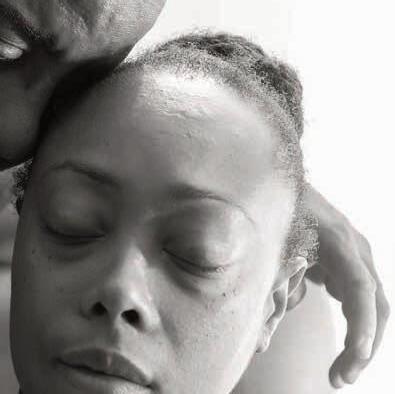

and in-person community grief educational healing programs, reaching more than 500 families. Programming has raised awareness, created space to grieve and provided an accessible avenue to hear and connect with peers with lived experiences, as well as therapists. Additionally, the organization has launched a support group for bereaved Black mothers who have experienced pregnancy and early infant loss, recognizing that pregnancy-related grief disproportionately impacts Black mothers.
This month, during Pregnancy and Infant Loss Awareness Month, AP is
launching Healing Circles to encompass care for fathers, siblings and other loved ones impacted by the loss of a child or sibling. This healing space is a safe, non-judgmental environment for Black families to grieve, celebrate, heal and remember through storytelling and sharing with each other.
The story of AP is one of countless stories centered around the importance of accessible mental health support.
In partnership with the Caring for Denver Foundation (CDF), the story of AP’s formation has been shared along with numerous other stories highlighting recovery, healing and community building. CDF is an integral resource that invests in peer support groups, individual therapy services and monthly connection-making activities, increasing access to community-based services.
Through collective storytelling, AP imparts hope into the lives of many, inspiring community members to grieve forward, grieve with purpose and grieve gracefully..
About Caring for Denver Foundation
Caring for Denver Foundation was founded and funded by the people of Denver with overwhelming voter support in 2019 to address Denver’s mental health and substance misuse needs and care through a city sales tax. The foundation has turned the community’s desire to help into action by growing communityinformed solutions, dismantling stigmas, and increasing access to community-based services. Caring for Denver Foundation has granted more than $172 million over the last five years to 264 unique community organizations and agencies, reaching over 100,000 Denverites each year. .
Editor’s Note: To learn more about Adam’s Purpose visit: https://www.adamspurpose.org/
The Future of Politics
Engaging Youth in the Political Process
By Latrice Owens
Young people are vital to the future of politics and play a crucial role in fostering community engagement. Across Colorado, organizations are working to engage young leaders in educational programming, preparing them for civic participation – now, and in the years to come.
The National Association for the Advancement of Colored People (NAACP), Colorado Black Women for Political Action (CBWPA) and the YMCA are helping to cultivate future voters by offering informative, youth-focused programming about government, politics and voting with practical, age-appropriate instruction. Through hands-on, yearround education, these organizations are empowering the next generation to actively influence change from an early age. As the country prepares for a significant election this November, the lessons learned from their efforts are keeping young people informed and aware.
Youth & Government
The younger generation’s involvement in politics is crucial for fostering civic responsibility and democratic values.
According to Tufts University’s Center for Information and Research on Civic Learning and Engagement, “Fifty percent of young people, ages 18 to 29, voted in the 2020 presidential election.” This was an increase from the 39 percent who voted in 2016 and was “...likely one of

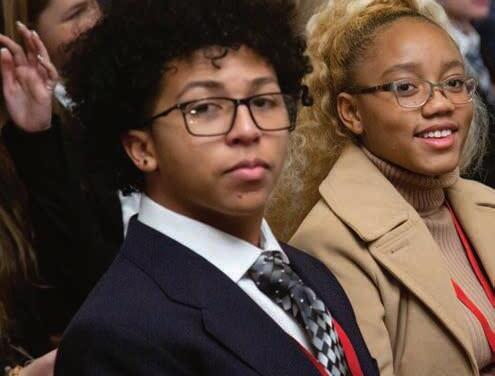
the highest rates of youth electoral participation since the voting age was lowered to 18.”
Additionally, the Pew Research Center indicates that strong opinions and early engagement in politics, such as voting or activism, are strong predictors of continued civic participation.
As youth participation in politics continues to rise, organizations are working to keep the momentum going.
NAACP
The NAACP Youth and College Council is a year-round program dedicated to developing future leaders committed to equality and social justice. Across the United States, 550 junior youth councils, youth councils, high school chapters and college chapters are actively involved in programming that promotes civil rights and social justice.
In Aurora, the Youth and College Council is an excellent resource for young people looking to learn more about the government and get involved in political programming on a local level.
The Aurora NAACP College Chapter is affiliated with the Community College of Aurora, and has maintained an on-campus presence, serving collegeaged students for nearly three years. The Aurora NAACP Youth Council serves youth between the ages of 13 and 24.
Chartashia Miller, Aurora’s youth council advisor, says

“We want to ensure a society in which all individuals have equal rights without discrimination based on race, by developing a new generation of civic rights and community leaders.”
She says that the NAACP’s mission goes beyond education – it’s about igniting a passion in young people to become informed advocates and proactive community participants. Throughout the year, the council’s participants are introduced to a range of critical topics.
“We have many different training sessions going on right now. There’s virtual training to talk about economic empowerment, federal tax policy, health and wellbeing, education, environment, climate justice, diversity, equity, inclusion and belonging,” she adds, with a guarantee that information is delivered in a way that’s easy for younger members to grasp.
In addition to learning about essential social supports and political processes, the youth and college councils partner with local organizations such as Struggle of Love, Young Aspiring Americans for Social and Political Activism and Aurora Mental Health. They learn the importance of volunteering, and participate in community outreach efforts including food distributions, backpack drives and clothing giveaways.
One of the most politically relevant programs offered by the Aurora youth and college chapters was an event featuring Colorado legislators, law
enforcement officials and school board members.
Representatives from state government and educational departments gathered to discuss their roles with young people, with nonpartisan dialogue that offered a comprehensive view of the electoral process.
Miller says that this event taught young people the significance of voting for local officials, and the ways in which local elections differ from presidential elections. She reminds young people that despite voter registration being allowed at age 16, it is important to update registration addresses and learn as much as possible about civic engagement by the time legal voting begins at age 18.
For membership information, visit www.naacp.org/take-action/become-member.
CBWPA
Colorado Black Women for Political Action (CBWPA) takes its own approach to empowering young people through innovative programs and events.
Founded in 1977 by 13 women including former Colorado State Senator Gloria Tanner, the organization’s primary goal is to create opportunities for civic engagement and political outreach within Colorado’s Black community.
According to CBWPA President Bianka Emerson, the organization has facilitated activities to prepare young people for future political engagement, while teaching about their role in the political process.
“Last year, we hosted a program with our youth chair and our hospitality chair for young people just to come and do reflection,” Emerson says.
This year, the organization held a “Hip-Hop and Politics” event in partnership with Colorado Public Radio and Cleo Parker Robinson Dance. Targeting Gen Z and Millennials, the event high-
lighted the ways that music and art – particularly hip-hop culture – can shape the political landscape. The event also served as a fun call-out to encourage voter participation.
“Our primary goal is, and will always be, education. Education is key,” Emerson emphasizes, pointing out a “Bill Tracker” feature on the organization’s website for public use.
“We follow what the legislature is doing during session and bills that are important to our values – that are important to the Black community.”
On Oct. 4, CBWPA will host its 46th Annual Black Women’s Summit, honoring local women for their achievements in education, community service, politics, and the arts. This year’s summit will also feature the presentation of the Excellence in Youth Leadership Award, recognizing an outstanding young leader in the community and encouraging civic engagement

from youth through adulthood.
For information about CBWPA and its programs, visit www.cbwpa.org.
YMCA
The YMCA’s Youth in Government program offers an additional layer of engagement for young people. This local initiative provides teenagers from 14 to 18 with hands-on experience in the legislative process and demonstrates the impact their voices have on their communities.
According to Celeste Medina, the program’s teen engagement manager, the main goal of Youth in Government is “To encourage teens to focus on things that they’re passionate about…”
Attendees receive information on topics such as how to pass a bill, debate and public speaking; and can select roles such as legislator, judge, lobbyist or journalist to portray in active dramatizations.
One of the highlights of the Youth in Government program is its accessibility for those who don’t have a civics delegation or group at their school, says Medina, who sponsors biweekly Zoom meetings.
Acting youth governor, 17year old Qynton Sayler, was inspired to commit to the Youth in Government program after a visit to Denver City Hall in his freshman year of high school. During the visit, he sat in the same chair that former U.S. President Barack Obama used during one of his trips to Colorado.
“Being able to go down to a conference and talk solely about policy is what changes your perspective in knowing you can make a difference,” says Sayler.
The Colorado YMCA Youth in Government Conference will take place from Nov. 24 to 27 in Denver, allowing schools and students interested in participating to register until Oct. 11.
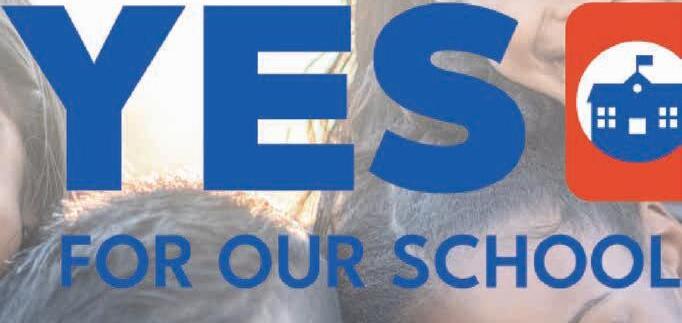
For registration and additional program information, visit www.denverymca.org/programs/youth-programs/youthgovernment.
The Key to the Future
Young people who learn how and why they should participate in the political process at an early age are more likely to take an active role in their local and national government as they get older.
The experiences created by organizations like the NAACP, CBWPA and the YMCA create a strong foundation for continuous involvement by providing a platform for young voices to be heard, while teaching that civic engagement is a lifelong responsibility.
Youth engagement is the key to democracy; as the late Nelson Mandela once said, “The youth of today are the leaders of tomorrow.”.









The home at 2527 Tremont Place sits at the nexus of the region’s historic Black community, within a literal and figurative five-point intersection of business, art, culture, politics and cuisine.
Within shouting distance –or a saxophone’s soulful wail –of the fabled Rossonian Hotel, an aspiring artist, barely a child, attempted to add to the area’s storied legacy from his grandmother’s home in the Five Points district. Sketching on the floor with minimal accessories, he compensated with raw imagination.
“I worked with what I had,” he recalls.
Years later, his wife bought him a table and easel, prompting his full-circle observation, “I feel like a real artist now.”
The initial tools and efforts of his youth may have seemed elementary at the time, but those early endeavors were more than a fleeting interest –they preceded a lifetime of creation and a full realization of art in its finest form.
That young boy grew into a celebrated man of exceptional talent.
A Gift from Above
Dr. Thomas Lockhart recently received the ultimate kudo, the Top 60 Masters Award, globally hailed as the “Oscars of the Visual Arts.”
Described by the Top 60 Masters Awards website as “the crown jewel of the visual arts
Dr. Thomas Lockhart’s Artistic Journey: A Spiritual Odyssey
By Wayne Trujillo


world,” the prestigious honor acknowledges “the ultimate triumph of visual mastery,” with only 60 artists recognized for the vanguard of creativity.


For Lockhart, artistry is an existential endeavor. Rather than regard art as a professional pursuit, set aside with a drop cloth at the close of business like a banker or lawyer sheds their tie and jacket after hours, his artistry is inseparable from his personal and spiritual exis-


tence.
While celebrating his fatherin-law’s 80th birthday in Macon, Georgia, he muses on artistry as a spiritual expres-


sion, explaining how both art and spirituality are inextricably connected, and why they ultimately define his existence.
Like much of his artistry, the journey from aspiring artist, to graphic designer, to worldrenowned artist wasn’t a simple or linear affair. It was a 3D
experience, replete with the challenges and wonders frequently encountered in both life and art. Many professions evolve courtesy of formal education and a degree, but Lockhart observes that his artistry comes from above.
He explains, “I pray – my gift comes from God.”
Spiritual direction guides Lockhart through the artistic process from start to finish. He allows “the Holy Spirit to take over,” glimpses a vision of what he will create and delves into the process. The work is complete not when a deadline hits or when the work week is finished, but when a piece or portrait realizes his original vision.
The gift came from above, but Lockhart wants to share it down here on Earth, allowing viewers around the world a glimpse of his spiritually inspired vision.
“I feel like I’m painting for other people, to see either themselves or history they haven’t encountered,” he explains.
Just as his spirituality inspires and guides him, his goal is to inspire and guide his audience, transporting them to a higher and more enlightened realm.
Brushing the Boundaries
Divine intervention may account for Lockhart’s current position as one of the premier artists of his generation. His childhood artistry took a detour in early adulthood, and while he never lost his affinity for the arts, he initially chose a more conventional and arguably more practical path.
He explored drafting and architectural studies in high school and pursued commercial art and graphic art in college, receiving an art and visual communications degree from Al Collins Graphic Design School. While related to his passion, those expressions couldn’t provide the emotional outlet he longed for.
Following the “turmoil and
Hair Love
Amazing Grace
The Overflow
Dr. Thomas Lockhart
stress” of a turbulent relationship, he was in need of an outlet to “free his mind.” He eventually found a release in the study of fine art, with an attrac-
Depictions of a Diaspora
The distance between commercial and creative artistry may seem chancy if not improbable to some, but others prone to faith would consider the transition inevitable, even preordained.

tion to the works of masters like Salvador Dali, Thomas Kinkade and Paul Goodnight. Impressed by their individual idiosyncrasies, he studied their perspectives and ultimately mastered his own artistic interpretations of the world.
“I ended up forming my own styles,” he says modestly. Those styles range from Cubism to figurative expressions as Lockhart doesn’t limit his artistry to a single style, method or medium.
Lockhart recounts his initial journey into creative artistic endeavors nearly a quarter century ago.
An art dealer encour aged his initial projects, allowing people the opportunity to view and

Evolving as an artist, he relishes diversity, exploration and discovery. He’s largely selftaught, having concentrated on commercial and graphic art in his formal studies and arriving at his virtuosic knowledge of creative art through voracious reading and life experiences. He considers himself a “diverse artist,” observing that two different pieces of his work often prompt people to believe that each originated from separate creators.
utions of Black culture reaching back to Biblical times, Lockhart announces his cultural pride with t-shirts donning affirmations like “Black Culture is Art,” as a benefit to society as a whole.
“I’m giving back to people,” he says. “This is really who we are.”

home turf.
Cultivating a national and later international following, his efforts have earned him impressive recognition and rewards. However, in addition to creating his own projects, he’s also a teacher and a cheerleader who mentors other aspiring creators.
“I want to help others pursue their gifts,” he stresses. “Giving his gift,” is a duty that he believes is owed to others.
Through his artistic vision, he creates multifaceted works of beauty and power featuring textiles, collage and jewelry, with interactive, 3D elements. He guides people through time, often highlighting the African Diaspora, which he refers to as “our history.”
With an affinity for presenting the deep and wide contrib-
Painted Perfection
A number of career-defining honors have made Lockhart one of the most celebrated Black artists of our time.
In addition to receiving the 2023 Top 60 Masters Award, he has been commissioned to create masterpieces for distinguished clients around the world, including writer, director and entertainment mogul, Tyler Perry, for his 50th birthday celebration. He was also commissioned to create a piece that was highlighted in the 2021 film, “Who We Are: A Chronicle of Racism in America,” and his work was included in the Vivid Arts Network program “Art Titans: Masters of the New Era,” in an episode titled, “Whispers of the Soul: The Legacy of Dr. Thomas E. Lockhart.”
The virtuoso has received an honorary Doctorate Degree in
Arts and Culture from the Denver Institute of Urban Studies and Adult College; a 2021 Director’s Award and Best in Show Award at Spectrum Miami; two Ohio State University Cultural Development Artist Awards in 2021 and 2022; and a Certificate for Artistic Excellence from the Circle Foundation of the Arts.
The beautiful cover image for this publication features Lockhart’s original work – an artistic depiction of the U.S. Vice President and 2024 Presidential Nominee, Kamala Harris. The historic portrait is accompanied by another of his original creations featuring Denver Urban Spectrum publisher, Rosalind “Bee” Harris, in recognition of the Denver’s Voice 37 anniversary event.
With an impressive portfolio displayed in magazines, at film festivals, on television programs and at art shows around the world, the honors and recognitions reflect Lockhart’s spirit, artistry and mission to educate others about the beautiful and formidable presence of Black brilliance.


With spiritually-guided confidence he says, “When you own a piece of my art, you own an integral part of all of us.”. Editor’s Note: To learn more about Dr. Thomas Lockhart’s work, visit www.thomaselockhart.com.
We Built This! III
Power Moves II
In The Key of Nina
Rosalind “Bee” Harris


Shane “SF1” Franklin
www.sf1music.com shanefranklin22@gmail.com
What form of entertainment do you specialize in?
I am a Grammy-considered vocal recording artist, as well as a drummer, music composer, dancer and actor.
Where were you born and raised?
I was born and raised in Denver.
What motivated you to start performing for audiences?
When I was little, the coffee table was my keyboard, the broom was my guitar and I would drum on my mother’s pots, pans and furniture. Eventually, she placed me in West African drum lessons at Cleo Parker Robinson Dance. My mother wrote plays and my aunt was a dance teacher, so I grew up surrounded by the arts. I began tap dancing at age eight, and writing my own songs at the age of nine.
Are you self-taught, or did you study your craft?
I studied music extensively, playing with the local Denver Marching Knights marching band; Colorado Conservatory for the Jazz Arts; and the African American Leadership Institute’s Jazz Garden. I attended Denver School of the Arts, then pursued my higher education at Berklee College of Music and the University of Colorado Denver.
How would you describe your artistic/entertainment style?
I am an artist that refuses to be put in a box. My genuine love for music instrumentation is evident in my ability to effortlessly infuse hip hop, pop, jazz





and rock music with influences of Afro-Cuban, Brazilian, West African and Middle Eastern music to create my unique, energetic sound.

Who/What is your biggest inspiration?
My mother is my biggest inspiration. Before I was born, my mother placed headphones on her midsection, playing various genres of music. I attribute my success to her love, support, guidance and willingness to foster to my interests as a child.
What is your favorite thing about being an entertainer?
I believe that our purpose on this planet is to help and serve one another. I feel that I am able to be of service through my art.
If you could collaborate with any other performer from any time-period, who would that be and why?
I would love to collaborate with Prince, Outkast or even the Nicholas Brothers! I would not only collaborate with them, but also be a student and learn from their teachings.
Do you have any upcoming performances?
I recently performed at Dazzle, and I am continually promoting my new instrumental music album, “Whimsical,” which I plan to submit for Grammy consideration.
Tell us something about yourself that would surprise our readers.
I am six generations deep here in Denver, with the Five Points neighborhood being the community I grew up in. I was also a participant in the Urban Spectrum Youth Foundation summer journalism program. .
Musical Evening Toasts 37 Years of Entertaining, Educating & Inspiring
Denver’s Voice 37 Gala brings community together to celebrate Denver Urban Spectrum, publisher and new foundation
By Tanya Ishikawa
Denver Urban Spectrum (DUS) Publisher Rosalind “Bee” Harris is notorious for bringing people together for laughter, singing, dancing, smiling and connecting the community – it’s in her DNA.


That’s how her longtime friend and event planner, Lori Collier, describes Harris; and that’s why Collier has been the enthusiastic lead planner for Denver’s Voice 37, “an exuberant night of fun” on Saturday, Oct. 19.
A Celebratory Affair
The elegant gala at the Noor Event Center in Aurora, Colorado, will celebrate Harris’ 37 years of publishing DUS and her well-earned retirement. The event will also raise funds for the Urban Spectrum Youth Foundation (USYF) and the Ruth Boyd Elder Abuse Foundation (RBEAF).
“This occasion is very special, as we are all coming together to laugh, sing, dance and smile to celebrate a phenomenal woman, Bee Harris, letting her know, “We Love You,” and “Your best days are
still ahead!” says Collier, founder and CEO of Lori Collier Events, LLC.
Collier’s successful events throughout the years have included health fairs, conferences, corporate meetings and weddings. She is perhaps best known for her leadership in the organization of the African Leadership Group’s annual gala events.
Meanwhile, Harris has organized DUS anniversary galas, annual African Americans Who Make a Difference parties and various community gatherings such as the Colorful Stories luncheon. The 25th DUS Anniversary Gala honored “25 Timeless Legends,” 25 history-making women in the Metro Denver area, while other anniversary galas have honored Men of Distinction and Denver’s Power Couples.
The two ladies have brought together a dedicated team of volunteers to put together Denver’s Voice 37, named for the 37th year of DUS and the voice that the publication has provided for Colorado’s Black community. The event name also recognizes the talented voices of the diverse entertainers lined up for the evening.
An Elegant Evening of Entertainment
Denver’s Voice 37 performers include spoken word artist Theo “Lucifury” Wilson; professional tap dancer Shane Franklin; comedians Darryl Collier, Sam Adams and Louis Johnson; saxophonist Yaz Ishikawa; and special guest singers, Vickilyn Reynolds (Los Angeles), Chester McSwain (Chicago), Julius Williams (Atlanta) and former First Lady
of Denver Mary Louis Lee (Denver/Texas)).
Highlighting the evening will be a performance by national recording artist Such, followed by an all-star showcase with the musical talents of Ron Ivory, Tony Exum Jr., Gregory Goodloe, Tony Price, Sethe, Linda Styles, Jeroan Adams, Linda Theus-Lee and Skippy “D” Lynch.
“This memorable event will make you want to dance the night away and have you captivated with performances that will leave you in awe. With the versatility and diverse talent, there is something for everyone to enjoy,” Collier reveals.
“As the night unfolds, you’ll have the opportunity to mingle, strike a pose for a photo and connect with a diverse group of individuals who share your enthusiasm for celebrating Bee Harris. You will also have the opportunity to catch up with old friends or make new ones; the atmosphere will be filled with warmth and camaraderie.”
The buffet dinner will feature an array of cuisine, prepared by chefs from the Creole Café. This new restaurant concept was developed by Donald James, longtime food entrepreneur with Pit Stop BBQ.
A silent auction will provide additional fundraising support to both USYF and RBEAF.
Created by Harris in 2001, USYF operates with a mission of providing youth with leadership and media literacy training through real-world experiences in writing, editing, photography, graphic design, business, leadership, sales and marketing.
Harris founded the nonprofit elder abuse foundation to honor and remember her mother, Ruth Boyd, who lost her life due to elder abuse in 2008. RBEAF provides caregiving services and helpful tools for aging adults and caretakers, raising awareness about elder abuse through outreach and education to promote safety
and improve the quality of life for the elderly population.
A Lifetime of Service
Denver’s Voice 37 will feature the premier of a mini-documentary about Harris’s family-focused and communitycentered life. The screening will provide a closer look at her 37 years at the helm of the awardwinning and innovative publication, and highlight her current aspirations. Written by DUS Managing Editor Ruby


Jones, the video is narrated by Jones and Kia Milan, an Emmynominated former USYF participant who currently works at Netflix.
The video’s final message reveals the spirit of Denver’s Voice 37 celebration:
“So, as Bee says goodbye to her daily activities with Denver Urban Spectrum and begins her new journey with her new foundation, think about the ways in which she and the pub-

lication have impacted your life. We hope you will support the continuation of community reporting to honor Bee’s incomparable legacy, and keep her vision alive for generations to come.”
Collier explains further, “We are looking forward to coming together as friends, family, colleagues and community members with a sense of gratContinued on page 14


































































































Denver’s Voice 37 Gala
Continued from page 13 itude and admiration to honor and celebrate the remarkable career of our esteemed Bee Harris, a leader who has not only guided our community to greater heights but has also inspired and mentored us all along the way.”
“Her leadership style, characterized by wisdom, integrity and compassion, has earned her the respect and admiration of everyone who has had the privilege to know her. Bee’s vision, leadership and unwavering commitment have been the driving force behind her success,” she adds.
As of Oct. 1, tickets and sponsorships were still available for Denver’s Voice 37, but with seating limited to 250 guests those hoping to attend are advised to act quickly.
“Get ready to let loose, have a blast, and create lasting memories. We can’t wait to see you there! LET’S CELEBRATE BEE HARRIS!” encourages Collier enthusiastically..
Editor’s note: For sponsorship opportunities, tables, tickets or to make a donation, visit https://tix.denverurbanspectrum.com/e/denversvoice/tickets or call 303-292-6446.


IS SPONSORED AND SUPPORTED BY:




Robert F. Smith Family City Park Law Group
Spangalang Brewery
Newman Center Presents: Lakecia Benjamin
On Sunday, Oct. 13, the Robert & Judi Newman Center for the Performing Arts will welcome three-time Grammynominated saxophonist Lakecia Benjamin to the stage. The uniquely inspiring performance will be accompanied by Oscar Perez on piano, Elias Bailey on bass and EJ Strickland on drums.
Benjamin, who adds arrangement, composition and education to her musical talents, is hailed as “a crafty traditionalist who remains in step with the rhythms of the young generation,” by The New Yorker Her warm, resonant tone has been compared to Johnny Griffin’s, lending itself to any form of music she chooses to play. In addition to honing her chops early with Clark Terry and later, Terri Lyne Carrington, she is also a noted accompanist for vocalists –among them Gregory Porter and Theo Crocker.
Born in New York City and raised in Manhattan’s predominantly Dominican Washington Heights neighborhood, Benjamin played recorder in grade school and junior high where she also began writing songs and lyrics. She won admission to the Fiorello LaGuardia High School for the Performing Arts, and it was there that she began playing saxophone. After graduation, she joined the renowned jazz program at New York’s New School University, where she studied with jazz veterans Billy Harper, Workman, Buster Williams and Gary Bartz.
She was introduced by Bartz to training technical exercise techniques which facilitated her

interest in the music of jazz saxophonists Charlie Parker, John Coltrane and Jackie McLean. She also played in Clark Terry‘s Young Titans of Jazz, and performed with Missy Elliott and Alicia Keys, widening her approach.
Retox, her 2012 debut, offered a beat-conscious set of soul and funk covers and originals produced by Ben Kane. In 2018, Benjamin played on “Right on Brotha,” the closing track from Robert Glasper’s Everything’s Beautiful, a collection of reimagined Miles Davis tracks.
Her sophomore date, Rise Up for Ropeadope, contained a Prince-inspired series of original jazz-funk jams. In 2020, she released Pursuance: The Coltranes. The widely acclaimed set contained six tunes each by Alice and John Coltrane, with Benjamin leading a large cast that included former Coltrane sideman Reggie Workman.
In 2023 she returned with the star-studded Phoenix. Produced by Carrington, it weds jazz, funky soul, R&B, and hip-hop with an all-star cast. The album brought upon three Grammy nominations.
Benjamin has undergone constant evolution as an artist and activist. Not wanting to be heard as merely an instrumentalist and soloist, but as an arranger and bandleader, her deep jazz roots and reputation for hard, yet innovative work, have garnered global acclaim and universal praise..
Editor’s note: For more information, call 303-871-7720 or visit www.newmancenterpresents.com.
The Impact of Black Political Participation
Colorado Black Caucus Pledges Support for Kamala Harris
Since 1895, the Black Democratic Legislative Caucus (BDLC) of Colorado has hosted 40 Black American legislators, promoting equality for the Black community while working to dismantle systemic inequities through the political process.
Today, 130 years after Joseph H. Stuart served as Colorado’s first Black legislator, the caucus membership role includes Colorado State Representatives and Senators focused on education, economic development, judicial reform, health care, and voting rights. According to the BDLC website, the caucus’ primary goal is to “work together to pass legislation, promote policies and advocate for the Black community and communities of color across the state.”
This legislative session marks several “firsts” for BDLC members – BDLC Chair and State Representative Jennifer Bacon is the first Black woman to serve as the assistant majority; State Representative Regina English is the first Black woman to represent El Paso County; and State Representative Iman Jodeh is the first Muslim legislator in Colorado.
In anticipation of the first woman of color being elected to the role of U.S. President, several caucus members have shared insights regarding the 2024 General Election – including their support for Democratic presidential candidate Kamala Harris – while dis-
cussing their roles as Colorado’s elected leaders.
JANET BUCKNER
State Senator - Senate District 29
What inspired you to get involved in politics?
My parents instilled in me the importance of being aware of how politics affects everyone’s lives.

Therefore, I have always valued the importance of being a citizen who is aware of social issues, awareness of candidates, political issues, and how policy affects all of our lives and. futures. My late husband, John W. Buckner, was an American educator who was elected in 2012 and served in the Colorado House of Representatives from 2013 to 2015, as a member of the Democratic Party. He was the first Black person to represent the 40th district in the state house. When he passed away while in office, I was appointed to fill his position. This was a difficult decision, as I was grieving and dealing with his sudden death, yet I said yes and continued my husband’s legacy as well as using my sense of purpose for the people of Colorado and my House District. Now, 9 years later, I am proud of my accomplishments as well as the difference I have made with important legislation that is making a difference in the lives of my constituents and the people of Colorado.
What are the most important lessons you’ve learned as a member of the Black Democratic Legislative Caucus?
I have learned that you must let all voices be heard with respect. This is not a new lesson to me since I have always been a believer that every voice must be heard. I believe respect is earned by valuing and showing regard for abilities, worth, feelings and views. The loudest
voice is not always the most important voice, and all voices combined make beautiful music. When you combine all voices then the important work can be completed.
Experience and wisdom can be utilized for the good of the caucus. One of my favorite quotes is, “Experience is the comb that nature gives us after we are bald.” When the caucus works together as one, important and crucial legislation and policy is formed to ensure equal rights for all, and especially for marginalized communities.
What are the most important issues for voters to consider during this election season?
Our freedom is literally at stake and this will be a very close race, so every vote will count.
Choosing the President of the United States in 2024 is the most important decision we will make in this lifetime, because the choice in this election will affect all of our lives,
our futures and our children’s futures. The vote will be watched around the world.
Many consequential policy issues are at stake, including reproductive rights, responsible AI, government spending, taxes, national security and the United States’ role, freedom and democracy. We will be voting for members of congress who play a key role in passing laws that can have a profound effect on everyone.
State and local elections are on the Colorado ballot as well. Voting is your way to let your voice be heard. Every aspect of each candidate’s platform should be examined thoroughly, because there is so much at stake.
What does Vice President Kamala Harris’ nomination as the democratic candidate for president mean to you?
VP Harris’ nomination means renewed and re-energized hope for me and all citizens and a new beginning to
Continued on page 16

Colorado Black Caucus
Contiued from page 15 let all voices be heard and respected. It is also the first time a Black and South Asian woman has been nominated which is historic. She is a lawyer who has had a successful and impressive career as a lawyer, attorney general, senator, and vice president. She is ready to lead as the U.S. President.
JAMES COLEMAN
State Senator - Senate District 33
What inspired you to get involved in politics?

It was not until I became an adult that I found a passion for politics. Since I was 11 years old, my dad and I have been serving and delivering food to the unhoused and volunteering at nursing homes to support our elders.
Serving others is what I do. It’s all I’ve ever known. When the opportunity came for me to run for the State House in 2016, many of the people who raised me in our community encouraged me to run. I never dreamed that I would run for office, but when my community called, I answered.
Serving in this capacity as an elected official is also a form of ministry for me. I became an ordained preacher at 14 years old, and have a deep commitment to my faith and exercising it for the benefit of others. This position enables me to enact real solutions for real needs of people from all walks of life in our State.
What are the most important lessons you’ve learned as a member of the Black Democratic Legislative Caucus?
The most valuable lesson that the Black Democratic Legislative Caucus (BDLC) has taught me is that who represents you matters. Especially at
the local levels of government, which are closest to you and have more of a direct impact on your day to day life. The saying “If you’re not at the table, you’re on the menu,” is beyond true. It is emblematic of our society’s institutional and systemic racism.
The BDLC has shown me how critical it is for us to open doors when they are closed, show up, and work collectively to be a driving force to advance the changes we seek.
What are the most important issues for voters to consider during this election season?
Now more than ever, I believe we must correct course on three key issues that are vital to the strength of our communities:
•Making investments to develop and sustain high quality schools.
•Increasing access to affordable housing.
•Creating the conditions necessary for upward economic mobility.
What does Vice President Kamala Harris’ nomination as the Democratic candidate for president mean to you?
This is an historic time in our nation. Having Vice President Kamala Harris on the Presidential ballot has been inspiring and motivational. We have seen record numbers of voter registration since her nomination, with young and BIPOC voters now being moved to vote and becoming more engaged with the political process.
Having Vice President Harris become our country’s first female President would be a dream realized, with that glass ceiling shattered to demonstrate that women, and girls like my daughter, can be President or anything else they want to be.
Harris’ nomination is very special to me, and I look forward to seeing her assume the title of the 47th President of the United States.
DR. REGINA ENGLISH
State RepresentativeHouse District 17
What inspired you to get involved in politics?

My inspiration to get involved in politics stems from a deep love and dedication to my community. I am committed to ensuring that we not only survive but thrive, aiming to build a positive legacy and impact that fosters a renewed sense of pride and love for our city, state and country.
Improving the quality of life for everyone and paving a clear path for the next generation of leaders is crucial to me. I recognize that the decisions I make today will influence my children and future generations, which drives me to focus on long-term solutions and meaningful, effective leadership.
Above all else, I feel a profound responsibility to continue the work of our ancestors and contribute to a lasting, positive change.
What are the most important lessons you’ve learned as a member of the Black Democratic Legislative Caucus?
As a member of the Black Democratic Legislative Caucus, the most important lessons I’ve learned are the power of collective leadership, the impact of thoughtful policy and the strength of authentic camaraderie.
Working together authentically, unselfishly and with genuine thoughtfulness can transform the narrative and trajectory for the communities and people we represent. Our collaborative efforts highlight that when we unite with a shared vision and purpose, we can drive meaningful change and address the challenges our communities face more effectively. This collective approach not only enhances our impact but also demonstrates the profound
difference that cohesive and compassionate leadership can make.
What are the most important issues for voters to consider during this election season?
During this election season, voters should carefully consider the integrity and ethical leadership of candidates, as well as their commitment to treating everyone with dignity and respect. These qualities are crucial for fostering a community where fairness and inclusion are prioritized.
Beyond personal attributes, it’s important to focus on issues such as equitable opportunities in education, employment, and healthcare, which are essential for ensuring that all individuals can thrive. Strategies to enhance public safety and community wellbeing, alongside plans for sustainable economic development, are key to building a prosperous future. A commitment to environmental stewardship and proactive measures to address climate change should also be a top consideration.
By evaluating candidates based on these comprehensive criteria, voters can help steer our community towards a positive and inclusive future.
What does Vice President Kamala Harris’ nomination as the democratic candidate for president mean to you?
Vice President Kamala Harris’ nomination as the Democratic candidate for president represents a profound moment of hope, joy, and inspiration for me. It signifies the maximization of a pivotal opportunity and the creation of a new space where Black women, and indeed all women, can aspire to achieve anything they set their minds to.
Her nomination is not only a historic milestone but also a powerful testament to the progress we are making toward greater representation and inclusivity in our highest offices. It fills me with optimism about the future and reinforces the belief that with determina-
tion and support, barriers can be broken and new possibilities can emerge.
TONY EXUM SR
State Senator - Senate District 11
What inspired you to get involved in politics?

I retired from the Colorado Springs Fire Department after 35 years of service, and was recruited by several smart friends to run for public office. They believed my decades of experience as an active community member, school sports official and church leader would be invaluable in political spaces. I trusted their judgment, so I ran for City Council and lost.
Despite this defeat, my friends encouraged me to try again, so I ran for a House seat in the state legislature and I won! As I began my service as the elected Representative for House District 17, I learned my friends were right: I could use my personal experiences and values to influence legislation and change laws to help people. What are the most important lessons you’ve learned as a member of the Black Democratic Legislative Caucus?
Teamwork. The Black Democratic Legislative Caucus works well together. Now, we don’t always agree with each other about everything, but when we do stick together to represent the interests of our communities and fight for what we want, we win significant victories for our people. We help each other plan and pass our legislation, and we all like working together as a team. What are the most important issues for voters to consider during this election season?
1. What kind of world do you want to live in, and who will help you get there?
2. Which candidates for office share your values?
3. Which questions on the ballot
solve real problems in a way you understand and agree with?
These are the questions we should be asking ourselves and answering every election season, because they are the issues which matter every time.
What does Vice President Kamala Harris’ nomination as the democratic candidate for president mean to you?
I like smart people who are good at their jobs, which is why I love Kamala Harris.
Yes, she is a trailblazer: being the first Black woman elected to serve as Vice President; being the first Black woman nominated by a major political party to be their candidate for President; and perhaps being the first Black woman who will win election to become President of the United States. But even more than that, she is intelligent, eloquent, qualified and capable of serving in all of these roles and more.
RHONDA FIELDS
State Senator - Senate District 28 What inspired you to get involved in politics?

My journey into public service was influenced by a personal tragedy. In 2005, my son, Javad Marshall Fields, and his fiancée, Vivian Wolfe, were tragically murdered in a double homicide in Aurora. This profound loss fueled my determination to address gun violence. I began working with Colorado legislators to tackle public safety, which ultimately inspired me to pursue a career in public service.
Everyone deserves to live a quality life where our basic human rights and freedoms are revered and protected. No family should have to bury their child due to gun violence.
What are the most important lessons you’ve learned as a member of the Black Democratic Legislative Caucus?
As a member of the Black Democratic Legislative Caucus, I’ve learned several crucial lessons. One of the most important is the power of working together with diverse voices. I’ve come to understand the significance of listening deeply to our communities’ needs and experiences, which ensures that our policies are both relevant and effective.
Finally, the value of perseverance has been reinforced; the struggle for progress requires resilience in the face of opposition.
What are the most important issues for voters to consider during this election season?
During this election season, voters should consider several critical issues:
Cost of Living, Affordable Housing and Public Safety: We need housing initiatives to ensure that housing is affordable for renters and families, securing housing stability for all. A safer community is a prosperous one. I’m committed to engaging community leaders to improve public safety, which includes community policing.
Economic Growth and Opportunities for Jobs and Small Businesses: We must support initiatives to enhance education and training opportunities, equipping residents with the skills needed to compete in a changing job market. By partnering with educational institutions and businesses, we can create apprenticeship programs, job fairs, and training opportunities to empower our workforce to meet Colorado’s talent needs.
Advancing Protections for Healthcare and the Environment: I will support clean energy initiatives and strong environmental protections while safeguarding basic human rights and freedoms for all.
What does Vice President Kamala Harris’ nomination as the democratic candidate for president mean to you?
I believe this election is a battle for freedom, opportunity, democracy, and the promise of America. I’m not backing down! I pledge my full support for Vice President Kamala Harris and Governor Walz in defeating Donald Trump.
With Vice President Kamala Harris, we can protect women’s reproductive health, safeguard voting rights, tackle climate change, lower the cost of living for families and strengthen public safety. I’m ready to fight for our values. Our future and progress are worth fighting for. Elect Democrats up and down the ballot in November.
NAQUETTA RICKS
State RepresentativeHouse District 40
What inspired you to get involved in politics?
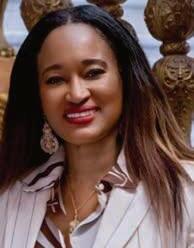
Immigrating to Colorado at the age of 13 gave me a unique perspective on the challenges faced by many communities in our state, particularly when it comes to opportunity and equity. I have seen how systems can uplift or hold people back, often due to their background, and I wanted to be part of the solution.
I have spent the past four years at the State House advocating for policies around affordable housing, consumer protections, small businesses and more, with the goal of promoting social equity across our state. Being an elected official allows me to make sure the issue of equity is being discussed and taken into consideration in Colorado’s Capitol.
What are the most important lessons you’ve learned as a member of the Black Democratic Legislative Caucus?
The power of collective action is incredible, and my time in the Black Caucus has taught me just how important it is. It is difficult to make change
Continued on page 18
Colorado Black Caucus
Continued from page 17 happen as an isolated individual, but when we come together as a community, we have a louder voice that is more effective at addressing issues of systemic racism, economic inequality and housing instability.
With members from across the state, the Black Democratic Legislative Caucus has also reaffirmed the value in hearing about the Black experience from every corner of the state.
What are the most important issues for voters to consider during this election season?
This election season, it’s important for voters to prioritize policies that will create lasting and stable change. Issues like housing, education and the environment are all on the ballot this November, and how we tackle each issue will be defining for Colorado’s future.
The impacts of inflation and the rising cost of living are felt
by every Coloradan, and we must support leaders who are committed to enacting real, tangible solutions.
What does Vice President Kamala Harris’ nomination as the Democratic candidate for president mean to you?
Kamala Harris’ nomination is a historic and powerful moment. Not only does it represent a breaking of barriers for women – especially women of color – in spaces where we’ve long been underrepresented, but it feels like a renewed hope for the future of our democracy.
Her journey highlights the strength that comes from perseverance, community, and a dedication to public service. While her policies are an exceptional aspect of her platform, her candidacy is also about representation – it’s a message to young Black and Brown girls everywhere that they, too, can lead and have a voice in shaping the future of our country.


JUNIE JOSEPH
State Representative House District 10 What Inspired Me to Get Involved in Politics
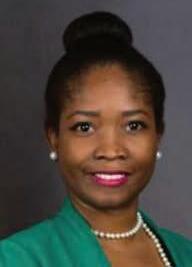
My journey into politics was driven by a deep sense of justice and a profound concern for those suffering in our communities. Witnessing the struggles faced by many, I became increasingly aware of how critical it is to address these issues head-on. It became clear to me that, despite the resources available, there were systemic barriers preventing equitable distribution and access.
What are the most important lessons you’ve learned as a member of the Black Democratic Legislative Caucus?

ensures that our perspectives are heard and considered in shaping policies that affect us all.
What are the most important issues for voters to consider during this election season?
As voters head to the polls this election season, it’s crucial to carefully consider two key issues: the track record of the candidates and their vision for the community. Evaluating a candidate’s track record helps determine their effectiveness and reliability. Consider their past accomplishments, how they have handled challenges and their overall impact on the community. A strong track record can provide insight into how they might perform in the future.
What does Vice President Kamala Harris’ nomination as the democratic candidate for president mean to you?
Serving as a member has taught me invaluable lessons about the power of unity and the importance of representation. I’ve witnessed how collective action can amplify our voices and drive significant policy changes. Working with dedicated colleagues, I’ve learned that true advocacy requires not only listening to but also actively addressing the diverse experiences and needs of our communities. It has become clear that being present and actively participating in discussions is crucial; being in the room where decisions are made




Vice President Kamala Harris’ nomination as the Democratic candidate for president is profoundly meaningful on multiple levels. Personally, I am deeply proud of her achievements and qualifications, especially after her compelling performance in the debate on Sept. 10. Kamala Harris is not only an inspiring figure but also extraordinarily qualified for the presidency..



Prosperity Denver Fund Welcomes New Leadership

Prosperity Denver Fund (PDF), a sales tax-funded nonprofit that supports organizations providing scholarships to Denver students is under new leadership.
In August, the organization hosted a private reception at the Clayton Hotel Member’s Club with stakeholders and community partners, welcoming Rebecca Arno as its new Chief Executive Officer.
Since being named as the sole finalist for the position, Arno has stepped fully into the role and has added additional
staff, completing the organization’s leadership transition. With more than three decades of experience in the philanthropic sector, she brings with her a wealth of expertise, a strong network of relationships and a deep commitment to PDF’s mission to increase the number of historically underresourced Denver students who access and complete postsecondary pathways.
In addition, Brian Labra Vergara joined the team as Program Support Specialist. In this role, Brian assists PDF Supported Organizations through the distribution process. He also supports the organization’s marketing efforts in generating community awareness of The Fund’s work and the impact of its nonprofit partners. .
Editor’s Note: For more information about PDF, visit www.prosperitydenverfund. org















Denver Film
Announces Colorado Spotlight Films for Film Festival
Denver Film has announced its lineup of feature films, documentaries and narrative shorts selected for inclusion in the Colorado Spotlight section of the 47th Denver Film Festival (DFF47). From Nov. 1 -10, screenings will take place at venues across the Metro Denver area including the Sie FilmCenter, Denver Botanic Gardens, Denver Museum of Nature & Science and the AMC 9 + CO 10.
“Celebrating and honoring the work of local filmmakers and local stories allows us to showcase what are often some of the most compelling films in our annual Festival through our Colorado Spotlight section,” said DFF47 Artistic Director, Matthew Campbell.
“We’re very aware of the challenges faced and embraced by our local filmmaking community and we know that the selection of a film for our Colorado Spotlight section is significant to these individuals and their work across the local and national film landscape.”
The DFF47 Colorado Spotlight Section is presented by Mary Watson, The Virginia W. Hill Foundation and Colorado Public Radio. Showcasing the work of filmmakers and stories with direct ties to the state of Colorado, the lineup of 21 films includes five features, six documentary shorts, eight narrative shorts and two films from the PBS docuseries, Renegades, presented by SeriesFest to showcase the lives of historical figures with disabilities.
Audiences can expect stories pulled from their own communities, like “Half-Life of Memory: America’s Forgotten Atomic Bomb Factory” which chronicles the ever-evolving controversy at Rocky Flats, or “Blind Sighted”, which was made by a current student at the Colorado School for the Deaf and Blind.
“This year’s lineup is, once again, going to deliver memorable, conver-
sational and entertaining film experiences,” said DFF47 Programming Manager, Ambriehl Turrentine, who programmed the shorts for this year’s Colorado Spotlight section.
“This is storytelling that covers a diverse spectrum of issues and personal stories centered around topics ranging from climate change, environmentalism, our nation’s nuclear legacy and wartime experiences, to stories of triumph, tragedy and perseverance across sports and outdoor activities, mental health and disability issues, sexuality and complex personal challenges.”
Tickets to individual screenings, special presentations, gala presentations, panels and parties go on sale to Denver Film members Oct. 3 and to the general public Oct. 4.
Colorado Spotlight Section screenings include:
COLORADO SPOTLIGHT FEATURE FILMS
•Chain Reactions
•Champions of the Golden Valley
•Chasing Time
•Half-Life of a Memory: America’s Forgotten Atomic Bomb Factory
•Lovers
COLORADO SHORTS: DOCUMENTARY
•Mr. Cato
•Blind Sighteds
•Fight or Flight
•My Name is Not Amy
•Dear Ely,
•Stone Dead
COLORADO SHORTS: NARRATIVE
•The Seagull (But Like, Not Chekhov)
•Heartless
•Kino Kopf
•The Lost Season
•Procession
•The Storyteller
•Parker and the Green Dress
•Black Metal
RENEGADES, PRESENTED BY SERIESFEST
•Daniel K. Inouye: Life of Service
•Brad Lomax: Creating Communities of Care
Editor’s Note: For a full description of featured screenings and to purchase DFF47 tickets, visit www.denverfilm.org














Theo E.J. Wilson
www.TheoWilson.net
lucifury@gmail.com
What form of entertainment do you specialize in?
I am a speaker, poet, actor, author and vocalist. My vocal performance features primarily soul music, though many people identify me as a slam poet and founding member of the Denver Slam Nuba team.
Where were you born and raised?
I am from Park Hill in Denver, but I was raised partially in Brooklyn, New York, and on the island of Jamaica.
What motivated you to start performing for audiences?
As a child, I was a class clown who performed for my peers. I began my speaking career at the age of 15, as a member of the NAACP, and I continued to perform throughout my youth and adulthood.
Are you self-taught, or did you study your craft?
I attended Florida A&M University, where I obtained a bachelor’s degree in theater performance.
How would you describe your artistic/entertainment style?
Slam poetry combines performance, writing, competition and audience participation. As a slam poet, I recite original poetry in a strong, captivating way, evoking an impassioned response from the audience. My musical style is centered around lyricism as well. Overall, my performance style is heavily focused on finding the best, most relatable way to express emotion through wordplay.
Who/What is your biggest inspiration?
My biggest inspirations are Tupac, Malcolm X, my grandfather and Michael Jackson.

What is your favorite thing about being an entertainer?
I am a conduit for something more powerful than myself. Entertainment allows me to bring people together, share uplifting and empowering messages and create connections. Ultimately, even though I’m the one on stage, I like that being an entertainer allows me to serve a bigger purpose.
If you could collaborate with any other performer from any time-period, who would that be and why?
I would love to collaborate with the incredible singer, songwriter, musician and composer, Ray Charles, whose impact on music despite his inability to see is a huge inspiration. I would love to see his genius up close, but to get piano lessons from him would be next level!
Do you have any upcoming performances?
I frequently perform spoken word and vocal entertainment at local community events, in addition to using social media as a platform for audience engagement and activism. I will be performing at Denver’s Voice 37, and I’m looking forward to the opportunity to celebrate Denver Urban Spectrum through spoken word.
Tell us something about yourself that would surprise our readers.
I used to raise butterflies, and I love to sit among flowers. .


Gomez Howard Group Celebrates 20 Years
Named Public Relations Team of the Year by PRSA Colorado
The Gomez Howard Group (GHG), a Black, Latina, womanowned integrated marketing communications firm founded in 2004 by Gerri Gomez Howard, was recently named Public Relations Team of the Year by the Public Relations Society of America (PRSA) Colorado. The firm leverages its expertise in integrated marketing communications, media relations, project management, digital marketing and multicultural engagement to help communities transform and advance the greater good.
The PRSA Colorado Chapter annually honors individuals and organizations in public relations that demonstrate best practices and uphold high ethical standards. The Public Relations Team of the Year Award recognizes a team that delivers outstanding results, showcases innovation and creativity, creates a positive impact on the communications profession and exhibits exemplary professional standards.
This recognition reflects GHG’s decades of experience, countless hours of dedication and a shared commitment to excellence.
Throughout its 20-year journey, the GHG team has focused on connecting the dots –whether between people and brands, ideas and actions or

challenges and solutions. Their work is characterized by authenticity and compassion, qualities that each team member brings to their work every day.
“Authentic communication and a genuine passion for people are at the heart of what we do,” shared GHG CEO, Gomez Howard. “Every challenge we face and every campaign we design is guided by the belief that our work should reflect empathy and understanding. This belief drives us to consistently deliver meaningful results for our clients and the community.”
GHG’s dedication to achieving outstanding results for its clients, its innovative approach to public relations and its positive impact on the communications profession have positioned it as a leader in the industry. Public relations is about more than managing messages; it’s about connecting the dots to craft stories that resonate, build bridges, and foster relationships that stand the test of time.
“Our team has embraced this work with both humility and heart, knowing that the impact we create extends beyond any single moment or project,” Gomez Howard added. “I am immensely proud of our journey—a journey marked by collaboration, creativity, and a shared vision for a better, more connected world.”.
Editor’s note: For more information about the GHG, visit www.gomezhowardgroup.com.



























Gaining Ground in the Black Community Social Equity Summit
Equity, Opportunity & Community Benefits
By Ruby Jones
Colorado Black Round Table (CBRT) will hold its annual Gaining Ground in the Black Community Social Equity Summit from Thursday, Oct. 17 to Sunday, Oct. 20. This year’s gathering, held in conjunction with numerous community organizations, businesses, corporations and concerned citizens, will focus on the theme of “Equity, Opportunity and Community Benefits – The National Pushback, The Black Community Pivot & The Road Ahead.”

The CBRT summit presents an opportunity for members of Metro Denver’s Black community to engage in positive discussions about pressing issues, while building upon the organization’s history of advocacy and leadership.















Dedicated to the Justice for Black Coloradans Initiative to develop equitable public policy, the four-day event will feature fireside chats and informative panel sessions led by elected officials and organizational leaders on topics such as reparations; diversity/equity/inclusion; economic development; government contracts; youth violence; philanthropy; education; public safety; housing; and health.
Representatives from First Bank, Denver Public Schools, Xcel Energy, Denver International Airport, the Regional Transportation District, the Denver Housing Authority and local municipalities will be present to discuss organizational initiatives and opportunities for community partnership. Black elected officials and women in business will take part in roundtable discussions to emphasize the importance of optimizing political and corporate leadership for positive change.
In preparation for the 2024 U.S. General Election, a voter education activation program called “Operation Black VoteJUST VOTE” will be held to promote civic engagement and participation.
Each day of the summit will






be held in memory or acknowledgement of an individual or organization whose legacy has improved conditions for the Black community.
On Thursday, Oct. 17, the summit will kick off at the Doubletree Hotel at 3203 Quebec Street, with a session titled, “Doing Business in Colorado Through Engagement, Collaboration and Accountability.” Held in memory of former Denver businessman John Selman, programming will begin at 3:30 p.m. with a Colorado Social Equity Summit Kick-Off Recognition Program acknowledging the Justice for Black Coloradans Social Equity Bill, with Colorado Attorney General Phil Weiser, John Walsh, Colorado State Senator James Coleman and more.
Representatives from local municipalities and corporations will provide information about doing business with public companies and service providers, followed by roundtable discussions about community benefits and Black women in leadership.
On Friday, Oct. 18 – Shirley Sims Day – a session titled, “Heart & Soul of Black FolksSaving our Sons, Our Daughters & Community: Vision, Voice and a Viable Plan,” will begin at 4 p.m. at the Doubletree Hotel. Corporate, city and educational leaders will share their commitment to youth, with discussions surrounding opportunities and programs for Black youth in the Metro Denver area. The day’s events will conclude after conversations regarding youth violence, and a recognition reception for Colorado State Senator Rhonda Fields.
Saturday, Oct. 19 – Elvin Caldwell Day – will feature a full schedule of events, beginning at 9 a.m. at the Zion Senior Citizen Center at 5151 E 33rd Avenue. The day’s theme “Gaining Ground in the Black Community - Hindsight,
Insight, Foresight: What Did We Do, What Do We Do Now & What Do We Do Next,” will present topics related to education, public safety, health and housing. Community updates about pressing issues such as the future of leadership, cannabis equity, climate, artificial intelligence and the Black vote will continue throughout the afternoon, with opportunities for networking at the day’s end.
The final day of the CBRT summit – Isabella Allen Day –will be recognized through a series of discussions held at Black churches in the Metro Denver area themed, “Just Vote Sunday: We Decide – A Seat at the Table or Return to the Back of the Bus.”
Throughout the summit, CBRT will make Freedom Fist Award presentations to Senator Fields and Donata Russell Ross and the Russell Innovation Center for Entrepreneurs. Community Service Awards will be presented to community organizations that have demonstrated a commitment to community benefits, service, equity and leveling the playing field in Colorado.
Summit honorees include: Collaborative Healing Initiative Within Communities (CHIC); Families Forward Resource Center; Second Chance Center, Inc.; Ethnic College Counseling Center; Make A Chess Move (MACM); Struggle of Love Foundation; Park Hill Pirates Youth Sports Organization; Higher Learning U, Inc.; AYA Foundation; and Denver Metro Community Impact.
Continuing its mission to strengthen the Black community, CBRT invites the Black community to engage in this inspiring and insightful event while addressing and dismantling disparities through dialogue. .
Editor’s note: For more information and sponsorship opportunities, call John Bailey at 720-629-0964 or email johnbailey062@gmail.com.




















Real Estate in the Next Generation
How Millennials and Gen Z are Redefining Homeownership
By Barry Overton






I own property in the coastal Southern California city of San Diego, and every other month for the past five years I’ve spent a week or two in the downtown area. The location and experience has opened my eyes to the next generation of homeowners, revealing what is important to them in their pursuit of property ownership.
Over the past decade, “Millennials” and “Generation Z” have been at the forefront of a dramatic shift in the real estate market. Unlike previous generations, these younger buyers are approaching homeownership with a distinct set of values, preferences and financial circumstances.
They are redefining what it means to own a home, and shaping the future of the real estate landscape. From the types of properties, they prioritize to the amenities and businesses they seek in their neighborhoods, Millennials and Gen Z are changing the game – and the industry is paying attention.
The Financial Reality: Navigating Challenges
One of the most significant factors that sets individuals in these generations apart from
older generations is the financial landscape in which they are purchasing homes.
Both generations have faced unique challenges that have influenced their home buying decisions, including the lingering effects of the 2008 financial crisis, mounting student loan debt and the rising cost of living in many urban areas.
Millennials, in particular, have delayed traditional milestones like marriage, starting families and buying homes because of financial instability. Many have been renters far longer than previous generations, and a significant portion are still first-time buyers well into their 30s. Gen Z, on the other hand, while still younger, is already navigating a highly competitive housing market characterized by rising interest rates and limited inventory.
These financial realities have created a more cautious and pragmatic approach to homeownership. Younger buyers are more likely to focus on affordability, seeking homes that fit within a tight budget while still offering long-term value. They are also more likely to favor areas where home prices are more reasonable, and where the potential for growth and appreciation exists.
Prioritizing Lifestyle Over Square Footage
While previous generations may have prioritized large suburban homes with expansive yards, Millennials and Gen Z tend to place a higher value on lifestyle and experience over square footage. This has led to a
growing preference for smaller, more efficient homes that offer flexible spaces and modern amenities. For many, the dream of the “McMansion” has been replaced with a desire for homes that are practical, sustainable and in tune with their values.
For example, open floor plans that allow for multifunctional living spaces are highly sought after. Many young buyers are working remotely or in hybrid work models, so homes that can accommodate office spaces or creative work environments are essential. Additionally, these generations often prioritize energy-efficient homes with smart technology that promotes sustainability. Solar panels, energy-efficient appliances and smart thermostats are increasingly viewed as must-haves, reflecting a commitment to environmental responsibility and long-term savings on utilities.
Young buyers also tend to prioritize homes that require minimal upkeep. With busy lifestyles and a focus on worklife balance, properties that offer low-maintenance landscaping, durable materials and modern infrastructure are particularly appealing.
The Importance of Location: Walkability, Convenience and Connectivity
For Millennials and Gen Z, location plays a pivotal role in their home buying decisions. However, unlike previous generations that may have prioritized suburban or rural settings, younger buyers are drawn to urban and semi-urban areas that offer walkability, convenience and connectivity. Proximity to work, public transportation and essential services like grocery stores, healthcare and entertainment is crucial.
Walkable neighborhoods are particularly important for buyers who value an active lifestyle and a sense of community. Many prefer homes that are
within walking distance of restaurants, coffee shops, parks and cultural venues. The idea of being able to leave the car behind and walk or bike to everyday destinations aligns with their desire for a more sustainable and health-conscious lifestyle.
In addition, these buyers are often more willing to consider up-and-coming neighborhoods or areas undergoing revitalization. They see potential in property that is less developed but offers the promise of growth in the future. This trend has led to the gentrification of certain neighborhoods, where young buyers seek affordability and the opportunity to be part of a community’s transformation.
Amenities and Businesses: What Matters Most
When it comes to amenities and nearby businesses, Millennials and Gen Z have distinct preferences that reflect their values and lifestyle choices.
In terms of the home itself, community-focused amenities like shared green spaces, fitness centers and co-working areas are highly desirable. Many young buyers prefer homes within communities that promote social interaction, wellness and recreation.
Additionally, pet-friendly communities are a priority for many of these buyers. As pet ownership increases among younger generations, having access to dog parks, petfriendly cafes and services like pet grooming or daycare has become a significant factor in choosing a neighborhood.
The types of businesses and services that surround a home are crucial in shaping where young buyers choose to live. Local, independently-owned businesses are often favored over large chains. They value supporting small businesses that contribute to a unique sense of place and community.
Moreover, the availability of sustainable, eco-friendly servic-
es is a growing consideration. Millennials and Gen Z are more likely to seek out neighborhoods with organic grocery stores, zero-waste shops and access to public transportation options that reduce their carbon footprint.
The Role of Technology in Real Estate Decisions
Technology plays a pivotal role in how Millennials and Gen Z approach the home buying process. Both generations rely heavily on online resources to research properties, compare prices and even take virtual tours. Social media platforms, real estate apps and websites that offer detailed information about neighborhoods, crime rates, school ratings and nearby amenities are essential tools.
For many, the convenience of technology allows for more informed and confident decisions. The ability to close deals digitally, apply for mortgages
online and communicate with agents virtually has made the process more accessible and less time-consuming. This digitalfirst approach to real estate is another way young buyers are changing the game, forcing the industry to adapt to their techsavvy expectations.
Millennials and Generation Z are redefining homeownership in ways that reflect their unique financial realities, lifestyle preferences and values. As they continue to enter the market, the real estate industry will need to evolve to meet their demands, offering homes and neighborhoods that align with their modern, forward-thinking approach to life. .
Editor’s Note: Barry Overton is a licensed Real Estate Broker Owner with the Super Agents Collaborative at eXp Realty. He has been an agent since 2001, and started investing in real estate in 1996. For more information, email: barrysellsdenver@msn.com or call 303668-5433.










Afrofuturism Op-ed
Continued from page 3
Remember, your tax dollar is what keeps the roads fixed, the schools opened, the fire department working and hospitals operating to save lives.
Some people are saying they will vote for Donald Trump because they received a check from him back in 2020…Not.
The check they received with a letter signed by Trump was money that the U.S. Congress approved using your taxpayer dollars.
Be smart, be a player and “do something”.
If you need information about the candidates, go to their websites. If you are ready to take it to the next level, find five more people to register and vote with you.
In this presidential election year, we have only one assign-
ment – to register and vote. Vote with your heart, vote with your voice and vote with your mind.
Then, when you cast your vote by Nov. 5, don’t sit back and just expect your issues to be resolved.
You have to keep elected officials accountable to you. When you vote, you have the right to demand accountability. It’s not enough to elect the people, you have to keep their attention focused on your issues.
Voting puts you in the game, and activism gives you the power.
Afrofuturists have the power to make history by electing Harris as U.S. President; and we need you to give us the liberated future you envision for Black life.
Tracy Winchester Afrofuturist















































You’ve made memories here. Your dreams started here. Whether it’s a wedding, unforgettable family vacation, kitchen remodel or college education, we’re here to help you realize your next dream. Get a home equity loan or line of credit with flexible financing and local processing.

Briana Fernandez Luna Vice President - Aurora Loan Production Office Aurora NMLS#1552486 720-697-5084
BrianaFernandezLuna@alpinebank.com 2340 Dayton Street Aurora, CO 80010

Timothy Floyd VP - Community Development Lending Mortgage NMLS#413950 720-683-7629
TimothyFloyd@alpinebank.com 1743 Wazee Street, Suite 100 Denver, CO 80202
Equal Housing Lender NMLS#414674 • alpinebank.com • Member FDIC


























